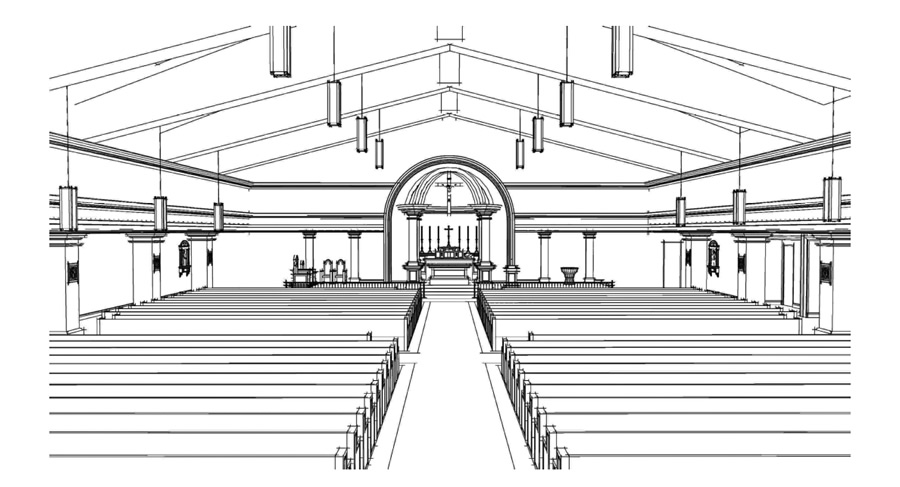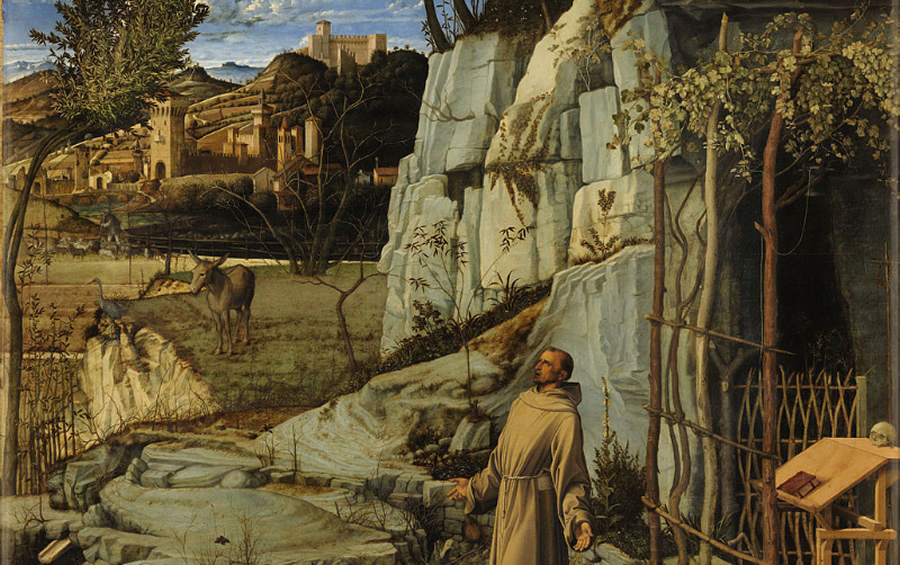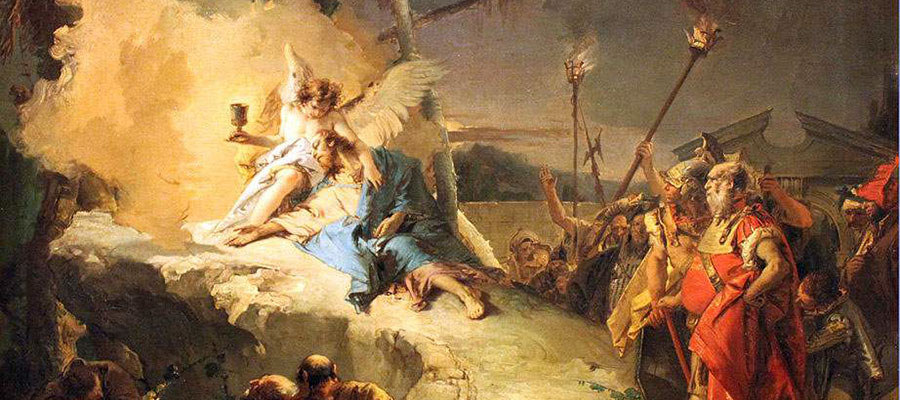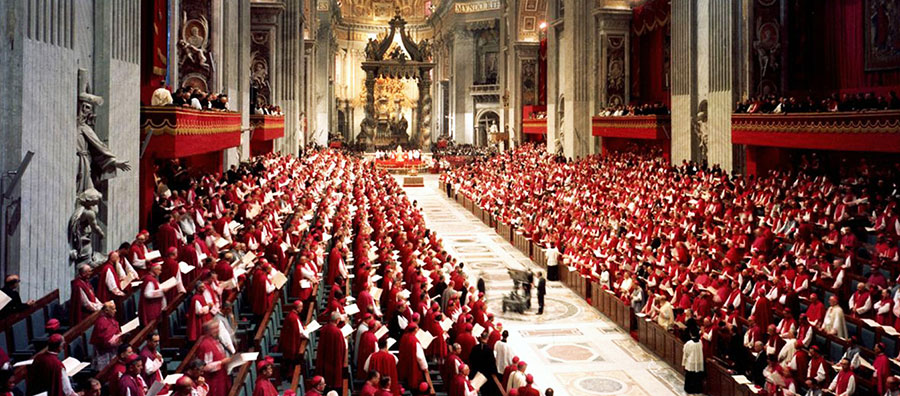
Results of the Building Plan Study
by Fr. Will Schmid | 10/30/2016 | Weekly ReflectionDear Saint Mary Magdalene Parishioners,
I would like to extend a special thanks to those who participated in the recent planning study conducted at Saint Mary Magdalene Catholic Church. We received a wonderful response from the parish, feedback that is extremely beneficial as we look to the future of Saint Mary Magdalene.
Continue
Frequently Asked Questions About the Proposed Building Plan
by Fr. Will Schmid | 08/28/2016 | Weekly ReflectionI thought the original plan was to build a brand new church?
Yes, the original plan developed in 2006 was to build a brand new 1800 seat church on the south side of the property facing Williams Field Road. The estimated cost of a new church of that size is approximately $10 million. In addition, the original plan was that the current hall would be renovated to include the official parish hall (smaller than the one we are proposing) and a very small basketball court/cafeteria for the future school. The cost of such renovations to the existing building would be between $1 and $2 million. Thus, if we were to follow the original plan, we would be looking at an overall $11-12 million campus expansion. What we are proposing is between $6 and $8 million. As mentioned in the 6 fact sheet, we believe our proposed plan is more feasible and fiscally responsible. To complete a $12 million campaign would likely involve borrowing a large sum of money, incurring a large debt for many decades and very likely requiring future monthly debt reduction collections, which are not typically all that successful.
Continue
A Heart for the Wretched
by Fr. Will Schmid | 06/26/2016 | Weekly Reflection"How many uncertain and painful situations there are in the world today! How many are the wounds bourn by the flesh of those who have no voice because their cry is muffled and drowned out by the indifference of the rich!" - Pope Francis
Although the salvation of souls is the first and primary mission of the Church, there are many people whom the world has deemed wretched who are in need of experiencing the merciful love of Jesus Christ. These people are not necessarily sinners, but the world has exiled them as if they were. Thus, we are called by mercy to have a heart for them as well. In particular, there are three groups of people, declared wretched by the world, to whom we ought to show God's merciful love during this year of mercy: the poor, the elderly, and the unborn.
Continue
The Noonday Devil
by Fr. Will Schmid | 05/15/2016 | Weekly ReflectionFollowing the Edict of Milan (313), when Christianity was declared a legal religion by the Emperor Constantine, a unique spiritual movement began in the Church where Christians from various social classes traveled into the desert to lead lives of prayer and asceticism in solitude. They felt led by the Holy Spirit to make their vocational dwelling place a cell in the desert where they could devote their entire lives to prayer. These Christians were known as the “Desert Fathers.”
As you can imagine, the Desert Fathers engaged in serious spiritual warfare, fighting off all kinds of temptations of the mind. Several of these Desert Fathers recorded their spiritual battles with the Evil One in writing for others to read and analyze.
Continue
The Message of Gethsemane
by John Lowrey, Parishioner and Nullity Coordinator | 04/03/2016 | Weekly ReflectionA week after Easter, John Lowery reflects on the sacrifice Jesus willingly accepted and what it reveals about who exactly Jesus is.
How many times in our lives do we make the small, simple decision of which way to go, which way to turn our feet? On one night, a man made that same decision, and the fate of all of mankind rested on his choice. The man had lain on the ground and prayed, and now he pressed his fingers into the sandy soil of the garden, and stood up. We can be sure that he could hear the sounds of soldiers coming toward him. He knew what was about to happen to him, to his body: he was going to give himself over to others to do with as they will and there can be almost nothing more abhorrent to a human than that thought; they would put their hands on him to take him and torture him and kill him. Not only did he have that reality to face, but he had the fate and the weight of the entire 4 world on his shoulders. Who was this poor soul?
Continue
Latin in the Liturgy
by Fr. Will Schmid | 03/06/2016 | Weekly ReflectionI thought Vatican II did away with Latin in the Mass?
One of the more challenging aspects of my priesthood has been correcting the errors of what people think Vatican II did. There are many myths about Vatican II. Unfortunately, this is one of them. Allow me to explain what Vatican II actually said about Latin in the Liturgy.
ContinueThe Name of God is Mercy: A Review of Pope Francis’ Latest Book
by Fr. Will Schmid | 01/31/2016 | Weekly ReflectionOn the Martin Luther King Jr. holiday, I scheduled an appointment to take my car into the auto shop on account of a recent recall. While waiting for the work to be done, I brought with me Pope Francis’ new book, The Name of God is Mercy. It is a combination of two documents: His Papal Bull declaring this year as a year of mercy, and a transcription of an interview between Pope Francis and Andrea Tornielli, where our Holy Father elaborates on his personal experiences with the mercy of God and his desire to call for a year of mercy for the entire Church.
As I began reading it, I found that I couldn’t put it down. I read for two and a half hours without interruption. When the service representative came to tell me that my car was ready, he asked me if I wanted to stick around for a while and continue reading my book. I almost said yes, because I realized I was only a few pages away from finishing the interview. Let me declare with confidence, Pope Francis’ new book is a wonderful read!
ContinueExcerpts from Salt of the Earth: Pope Benedict XVI’s Insights Into Important Questions
by Fr. Will Schmid | 01/24/2016 | Weekly ReflectionAs many of you know, spiritual reading is a significant part of my daily life. I read for an hour or more nearly every day. Recently, I finished Salt of the Earth: The Church at the End of the Millennium. This is a published interview between Pope Benedict XVI and Peter Seewald, recorded in 1996 when Pope Benedict XVI was Cardinal Ratzinger and head of the Congregation for the Doctrine of the Faith (CDF). In this interview, Pope Benedict XVI offers some profound insights into his personal life and what it means to participate in the life of the Church, and he addresses some important questions about the Church in today’s world. I thought it would be nice to invite you to participate in my spiritual reading by sharing some excerpts from this interview.
What were your concerns when Pope Paul VI made you the bishop of Munich?
“I had, of course, very great doubts at first whether I should or ought to accept this appointment. I had little pastoral experience. I felt that, in principle, I was called from the beginning to teach and believed that at this period of my life - I was fifty years old - I had found my own theological vision and could now create an oeuvre with which I would contribute something to the whole of theology.
I then took counsel and was told that in an extraordinary situation such as we live in today, it is also necessary to accept things that don’t seem to be in the direction of one’s life from the beginning. Today, the problem of the Church is very closely tied to that of theology. In this situation, even theologians have to be available as bishops.” (Excerpts from page 81)
ContinueThe Father's Merciful Love: The Fulfillment & Destiny of Every Man
by Fr. Will Schmid | 01/10/2016 | Weekly ReflectionIn light of the Father’s merciful love made incarnate to us through the gift of His Son Jesus Christ, we come to see how man finds his fulfillment and destiny in mercy. Gaudium et Spes, the Second Vatican Council’s Constitution on the Church’s relationship to the modern world, says:
“The truth is that only in the mystery of the incarnate Word does the mystery of man take on light…Christ, the final Adam, by the revelation of the mystery of the Father and His love, fully reveals man to man himself and makes his supreme calling clear…He Who is ‘the image of the invisible God’ (Col. 1:15), is Himself the perfect man…For by His incarnation the Son of God has united Himself in some fashion with every man” (Par. 22).
If Christ is the Father’s merciful love made incarnate, and Christ has united Himself in some way to every man, and in so doing reveals man fully to himself, then every man is somehow destined to re-discover himself in mercy.
ContinueThe Meaning of Mercy
by Fr. Will Schmid | 12/20/2015 | Weekly ReflectionOur Holy Father, Pope Francis, has declared this new liturgical year, beginning December 8 (the Solemnity of the Immaculate Conception), as a “year of mercy.” As the “motto” for this new liturgical year, Pope Francis has chosen the Latin phrase, Misericordes Sicut Pater, meaning, “Merciful like the Father.” He has asked that we spend this next year reflecting on what it means to have a merciful Father, and how we can integrate God the Father’s merciful love into our daily lives. In his Apostolic Bull inaugurating the year of mercy, Pope Francis said, “At times we are called to gaze even more attentively on mercy so that we may become a more effective sign of the Father’s action in our lives.” As a response to Pope Francis’ call for a year of mercy, I would like to offer a few thoughts to assist us in our endeavor to discover anew God’s merciful love for us.
As we begin our contemplation of God’s merciful love, it would be fruitful for us to begin with an analysis of the Latin word chosen to capture the essence of God’s love. A linguistic breakdown of the Latin word, misericordia (mercy), provides for us an insightful glimpse into what is meant when we describe God’s love as, “merciful.”
ContinueLooking Together at the Lord
by Fr. Will Schmid | 11/29/2015 | Weekly ReflectionFrom 2012-2014, Benedictine University in Lisle, Illinois performed a survey for the Roman Catholic Diocese of Springfield, Illinois to discover the reasons behind serious declines in Mass attendance over the last decade in the Springfield Diocese. This study yielded major findings for both active and inactive Catholics in the Springfield Diocese.
As I was reading through the results of the survey, there was a major finding concerning active Catholics that I believe is worthy of some reflection:
“Parish priests or pastors were the most frequently given responses for what parishioners liked least about their parish and for those considering separating from their Parish, the Catholic Church or both.”
How is this possible? How did the priest acquire such importance? Why would someone’s relationship to a parish or to the Catholic Church itself depend entirely on an individual priest?
As many of you already know, I am an adjunct professor of Theology at Benedictine University in Mesa (the sister campus of Benedictine University in Lisle). In particular, I teach Sacramental Theology. At this time in our course, my students and I are reading through Joseph Cardinal Ratzinger’s (also known as Pope Emeritus Benedict XVI), The Spirit of the Liturgy. In this magnificent theological work Ratzinger mentions something that I believe pertains to the major finding as noted above.
Continue